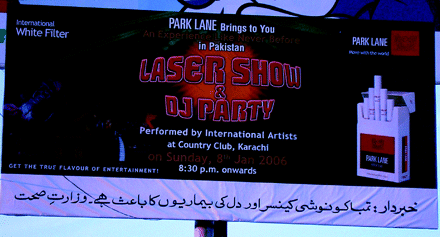Article Text
Statistics from Altmetric.com
From 1 January 2006 the Spanish government introduced a new law against smoking (Ley 28/2005). This law is not only a ban on smoking but a compendium of public health measures against smoking and regulations on the sale, supply, consumption, and publicity of tobacco products. The law’s main objectives are to protect non-smokers (especially at the workplace) from secondhand smoke—currently, 69% of the Spanish adult population, both sexes combined, declare they are non-smokers—to prevent initiation among young people, and to promote smoking cessation.
The law creates smoke-free environments in all enclosed public and private workplaces and smoking is now banned in all indoor public places, public transportation including closed stations, hospitals and other health care facilities, schools and universities, as well as retail stores and shopping centres. There are important (and worrying) exemptions regarding bars and restaurants: while hospitality venues of more than 100 square metres are smoke-free, the law allows the owner to establish a smoking area of less than 30% of the total area. Moreover, in “small” venues of less than 100 square metres (as most bars in Spain are) the owner may decide whether to implement a smoke-free policy or not—and the first estimations indicate that only 5–10% of such bars have gone smoke-free. The law limits the sale and supply of tobacco products that can now be sold only at tobacconist’s shops and smoke-permitted (smoke-polluted) bars and restaurants. Vending machines are hence prohibited in any other place. The legal age for buying cigarettes increases to 18 years old, and vending machines will include control mechanisms to restrict their use to adults. Regarding promotion, the law prohibits all type of advertisements, other forms of promotion, and tobacco sponsorship activities in all public and private media. Again there is an exemption: a further three years has been granted for sponsorship and publicity among participants and teams in motorcycle and Formula One international races.

Pakistan: Karachi was recently adorned with cigarette advertisements like this one, posing as promotions for a music event, ensuring young people continue to be bombarded with positive associations for British American Tobacco’s cigarettes.

The Lone Star will no longer stand alone as a smoke-free restaurant, after Guam’s new legislation takes effect.

In Spain, a new law against smoking has been introduced, creating smoke-free environments in all larger public and private workplaces.
Not many years ago, this law was unthinkable in Spain. However, Spanish society (ordinary citizens, including smokers, politicians, and society in general) has matured. Several organisations (not only scientific societies but also non-governmental organisations such as the National Committee for Smoking Prevention and several consumers’ organisations) and public health leaders created the necessary level of understanding about the reasons for the new law. The message was simple: smoking and secondhand smoke are harmful to health. A number of small but multilevel activities have been conducted by many different players, leading to a big achievement. Now the task is to ensure compliance. Improvements will come soon. In this connection, the regional governments within Spain have the right and the duty of assuring compliance (even applying the penalties specified in the law) and the ability to improve the legislation in each region. Ongoing studies to assess changes in individual and environment exposure to secondhand smoke may help to evaluate the effectiveness of the law and even to improve it, by extending the ban to all hospitality venues if decreases of exposure only occur in workers at smoke-free bars and restaurants.
Spain is the sixth European country, after Ireland, Norway, Sweden, Malta and Italy, to put in place comprehensive regulation to prevent and control smoking. This is of particular interest, since it demonstrates that the way traced by the Framework Convention for Tobacco Control can be followed by different cultures and societies. The example of these countries may encourage not only the rest of Europe, but similar initiatives in all countries under the threat of the tobacco industry.
Linked Articles
- News analysis


